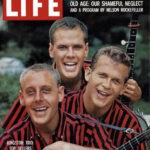“Take Me To Church” by Hozier is more than just a song; it’s a powerful anthem that blends themes of love, devotion, and sacrilege into a soulful and thought-provoking experience. Released in 2013, this track quickly resonated with audiences worldwide, not only for its mesmerizing melody but also for its lyrical depth and controversial themes. Let’s delve into the layers of meaning within the “Take Me To Church Song And Lyrics” to understand its enduring appeal.
Love as a Form of Worship
At its core, “Take Me To Church” uses religious imagery to describe the intensity and almost spiritual nature of romantic love. The opening lines, “My lover’s got humour / She’s the giggle at a funeral,” immediately establish a relationship that thrives outside societal norms and expectations. This love is presented as something genuine and life-affirming, contrasting sharply with the perceived hypocrisy and bleakness of organized religion, described as “Every Sunday’s getting more bleak / A fresh poison each week.”
The lyrics explicitly equate this romantic love to a form of worship. The lines “My church offers no absolutes / She tells me, ‘Worship in the bedroom'” are central to understanding the song’s message. Here, the bedroom becomes a sacred space, and the lover becomes the object of devotion. This intimate connection is portrayed as more authentic and fulfilling than traditional religious practices.
 Hozier performing Take Me To Church live
Hozier performing Take Me To Church live
Alt text: Hozier passionately sings “Take Me To Church” on stage during a live concert, bathed in dramatic lighting.
Sin, Confession, and Sacrilege
The song doesn’t shy away from exploring the darker, more complex aspects of love and desire through religious metaphors. Phrases like “I’ll worship like a dog at the shrine of your lies” and “I’ll tell you my sins so you can sharpen your knife” evoke a sense of vulnerability and submission. This isn’t necessarily about literal sin, but rather the willingness to expose one’s flaws and imperfections to a loved one, offering them complete power and control within the relationship.
The idea of “deathless death” further emphasizes the transformative and all-consuming nature of this love. It suggests a transcendence beyond the ordinary, a spiritual experience found in the physical and emotional connection with the lover. This is reinforced by the repeated plea, “Take me to church,” which becomes a yearning for this specific, personal form of salvation and transcendence.
Critique of Organized Religion
While celebrating love, “Take Me To Church” subtly critiques the perceived rigidity and judgment of organized religion. Lines like “We were born sick, you heard them say it” reference the concept of original sin, a doctrine Hozier seems to reject in favor of a more humanistic and personal spirituality. The song suggests that true divinity and purity (“Only then I am human / Only then I am clean”) are found not in religious institutions but in authentic human experiences, particularly love and intimacy.
The absence of “Masters or Kings” when “the Ritual begins” further underscores the personal and liberating nature of this chosen “church.” It’s a space free from hierarchy and dogma, where “gentle sin” is not condemned but embraced as part of the human experience.
Conclusion: A Timeless Anthem of Love and Devotion
“Take Me To Church” remains a powerful and relevant song because it taps into universal human emotions – the desire for love, acceptance, and a sense of something greater than oneself. By using potent religious imagery, Hozier crafts a narrative where love becomes a sacred and transformative experience, offering an alternative to traditional forms of worship. The enduring popularity of “Take Me To Church song and lyrics” lies in its ability to resonate with those who find the spiritual in the secular, and who understand love as its own form of profound devotion.


